On May 22, the release and international symposium on “Global Governance and Leadership Talent Development for 2050” was held at Renmin University of China (RUC).
Attendees included Zhang Donggang, Chair of the University Council; Siddharth Chatterjee, UN Resident Coordinator in China; Fabrizio Hochschild-Drummond, former UN Under-Secretary-General, Researcher at the Geneva Centre for Security Policy, and Senior Fellow at Columbia University’s Kent Global Conflict Resolution Program; Monica Bruckmann, Professor at the Federal University of Rio de Janeiro; Yao Jianguo, Deputy Director of the International Exchange Center of the International Department of China; Chen Wenling, former Chief Economist of the China Center for International Economic Exchanges; Zhao Lei, Deputy Director-General of the Department of International Cooperation and Exchanges of the Ministry of Education; Guan Zhiyong, Deputy Director-General of the Department of International Cooperation of the China International Development Cooperation Agency; and others. The forum was chaired by Zhi Xiaoqiang, Vice President of RUC.
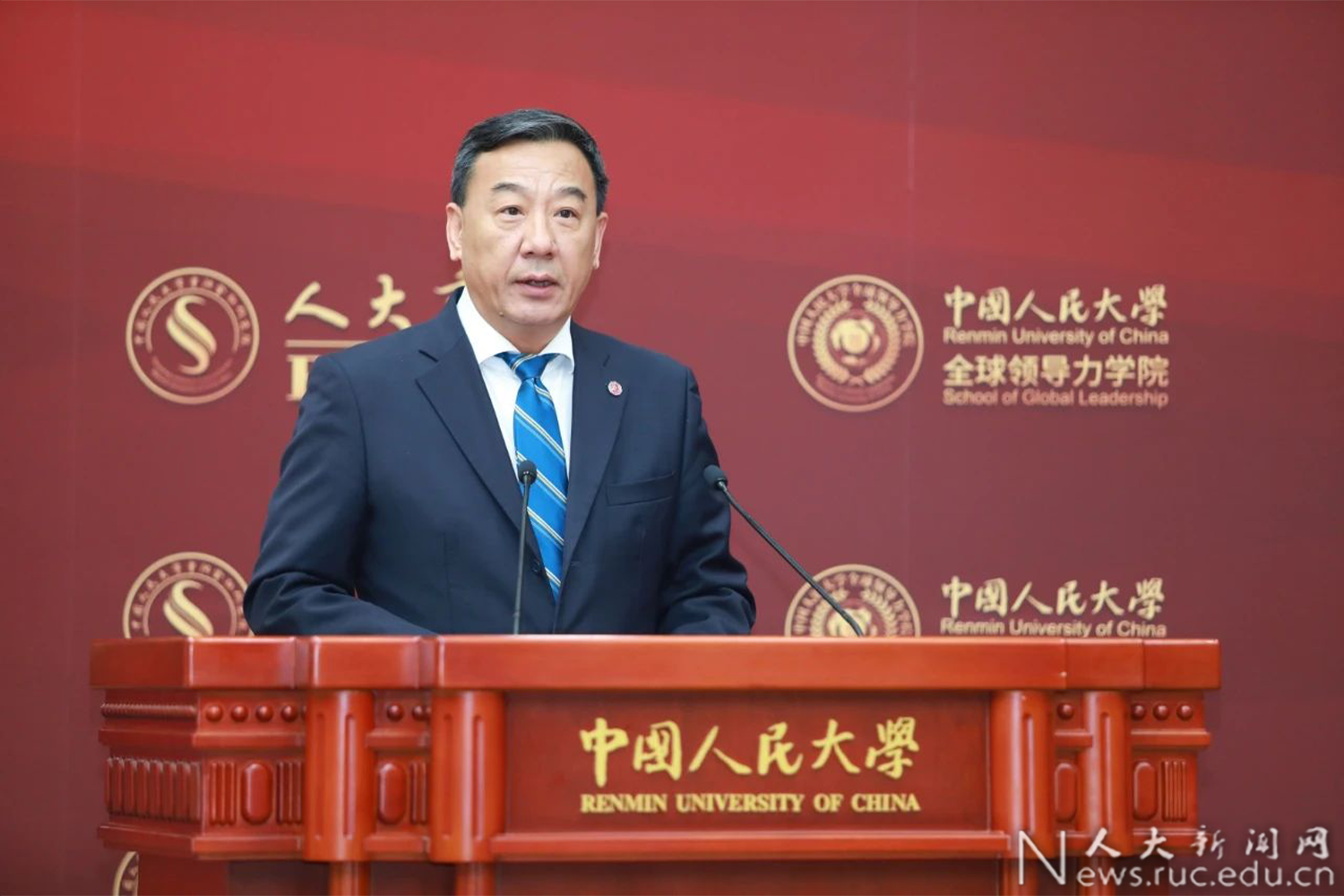
Zhang Donggang, Chair of the University Council, stated that RUC established the country’s first School of Global Leadership in 2024, dedicated to providing robust peaceful forces and talent support for promoting world peace and development and advancing the building of a community with a shared future for mankind. Through the Global Leadership Forum as a collaborative platform, RUC will work hand-in-hand with global experts to build a talent cultivation system that prioritizes "value guidance, capability forging, and practical training," create a synergistic "school + think tank" operational mechanism, contribute new strategies for comprehensive human and societal development, improve global civilization dialogue networks, and leverage global leadership to consolidate value consensus, strengthen developmental foundations, and steer the course of civilization, thereby advancing global governance and global progress steadily.
Yao Jianguo, Deputy Director of the International Exchange Center of the International Department of China, emphasized that the world is undergoing profound transformations, and global governance urgently requires new models aligned with shared human values and civilizational trends, as well as visionary, innovative, and globally-minded leadership talents. This forum’s focus on future leadership cultivation and global governance reform reflects RUC’s commitment to serving national strategies and human progress. He expressed hope to strengthen collaboration with RUC in global governance research and leadership talent development to contribute to global governance system reforms.
Zhao Lei, Deputy Director-General of the Department of International Cooperation and Exchanges of the Ministry of Education, noted that cultivating global governance talents is a critical topic for education, development, China, and the world. He encouraged RUC to deepen exploration in this field by innovating interdisciplinary talent cultivation models, integrating research and education for stronger theoretical foundations, fostering openness to shape exemplary international exchanges, and exploring "AI + governance" training approaches to nurture broad-minded, forward-looking leaders, thereby providing stronger support for building China into an education powerhouse.
Guan Zhiyong, Deputy Director-General of the Department of International Cooperation of the China International Development Cooperation Agency, stated that amid global transformations, China remains a builder and leader of a new global governance system. As the first high-level dialogue platform for global leadership in Chinese academia, this forum offers innovative ideas and practical pathways to address development deficits and improve global governance. The China International Development Cooperation Agency will deepen cooperation with RUC and other institutions to support global talent exchange platforms and advance the vision of a shared human future.
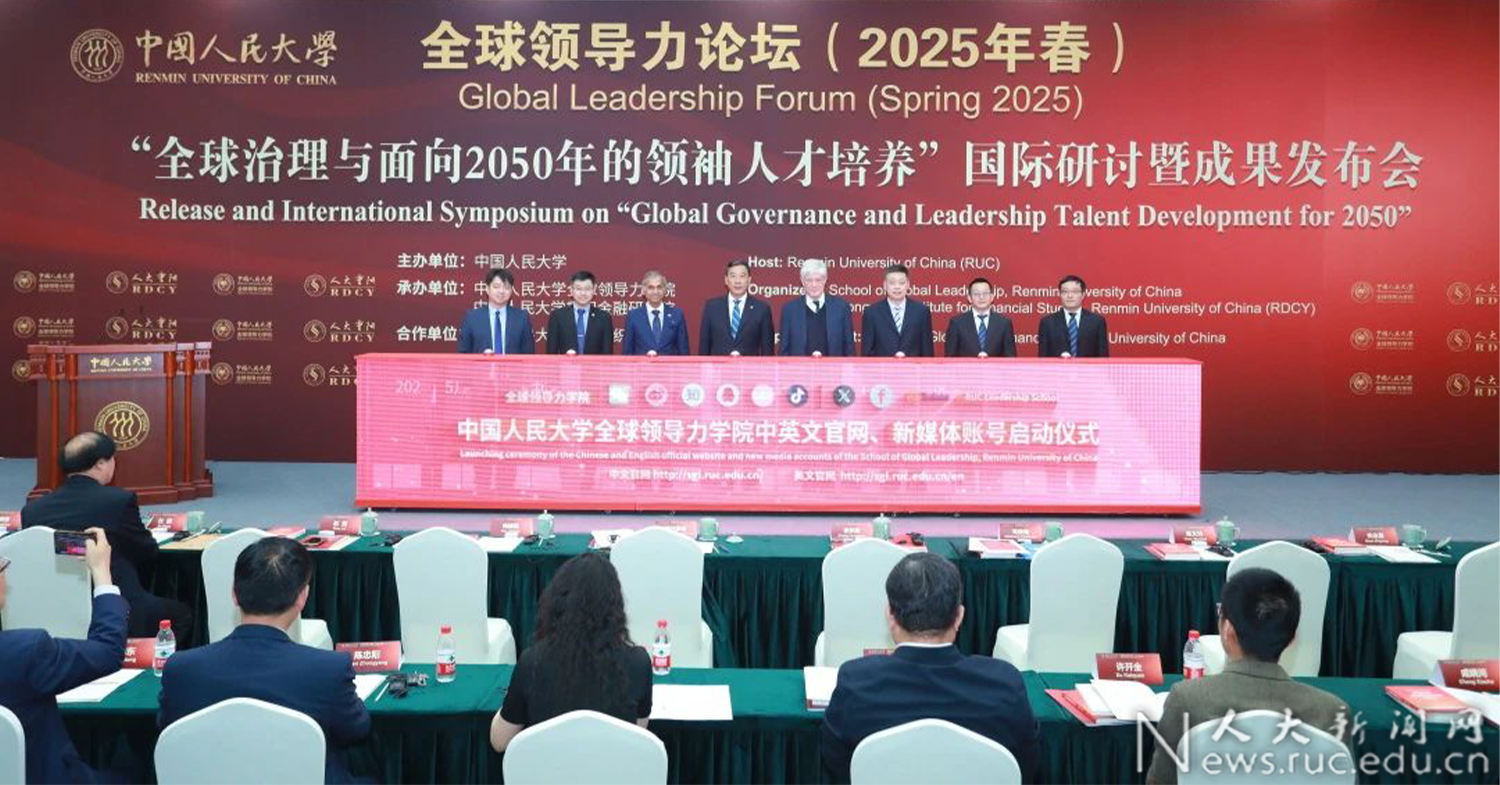
Zhang Donggang, Siddharth Chatterjee, Fabrizio Hochschild-Drummond, Yao Jianguo, Zhao Lei, Guan Zhiyong, Zhi Xiaoqiang, and Wang Wen, Dean of RUC’s Chongyang Institute for Financial Studies and School of Global Leadership, jointly launched the Chinese and English official websites and social media accounts of School of Global Leadership.
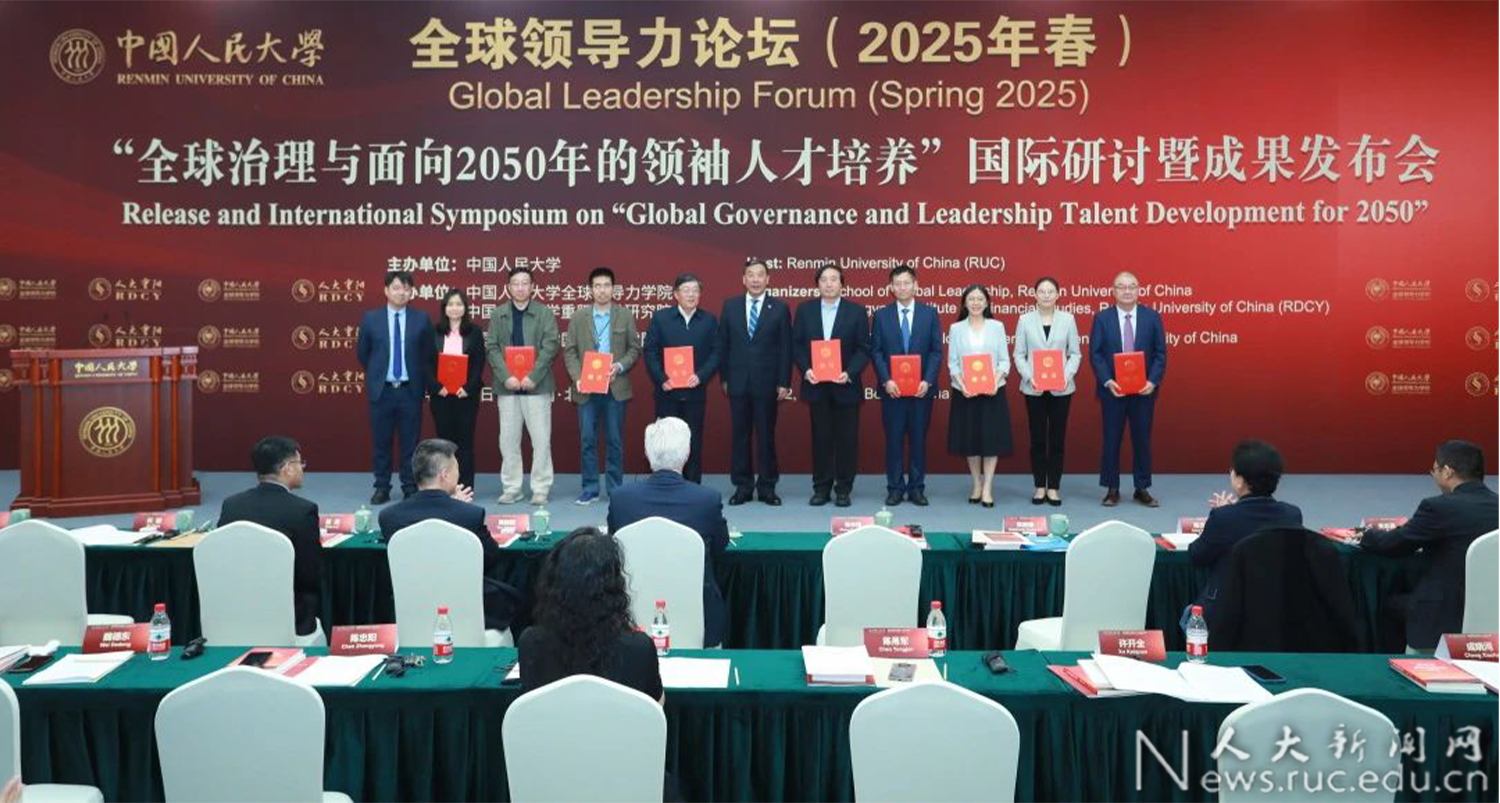
Zhang Donggang presented appointment letters to faculty representatives of School of Global Leadership., including Du Peng (Dean of the School of Population and Health), Zhang Xiaomeng (Chair of School of Discipline Inspection and Supervision), Deng Jinting (Professor of School of Discipline Inspection and Supervision), Wei Dedong (Professor of School of Philosophy), Chen Zhongyang (Professor of School of Finance), Zhong Xin (Professor of School of Journalism), Cheng Xiaohe (Professor of School of International Relations), Chen Yongjun, and Xu Kaiquan (Professors of School of Business).
During the achievements release session, Wang Wen introduced three publications:The World Views China in the New Era 2025, Compound Interest-Style National Development and China’s Developmental Advantages, and the think tank reportnamed Centennial Transformations and Global Leadership Talent Cultivation Toward 2050.
The World Views China in the New Era 2025 compiles perspectives from 33 foreign dignitaries and experts on China and global issues, analyzing China’s reforms and their positive significance for both Chinese and global citizens through lenses of global development, governance, South-South cooperation, Chinese modernization, and the Belt and Road Initiative.
Compound Interest-Style National Development and China’s Developmental Advantages outlines six characteristics of national compound interest-style development: accumulative, growth-oriented, long-term, comprehensive, innovative, and sustainable. It calls for further reforms to break developmental barriers and secure better lives for all.
The think tank report Centennial Transformations and Global Leadership Talent Cultivation Toward 2050 highlights the urgent global demand for new leadership talents amid a "leadership deficit," emphasizing that future leaders must possess strategic vision and actionable wisdom to navigate technological revolutions, climate crises, multipolar order reshaping, and intergenerational shifts.
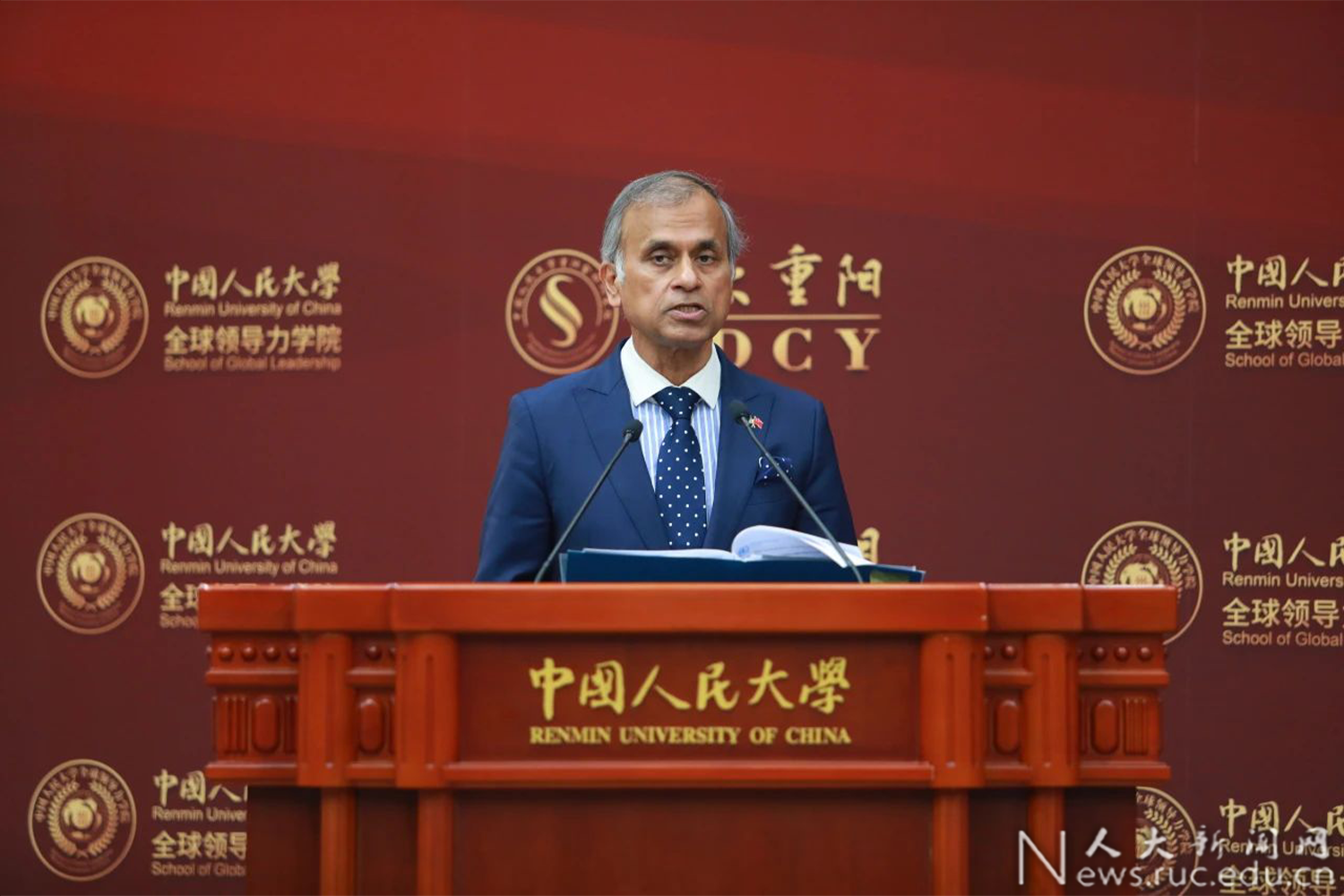
Siddharth Chatterjee, UN Resident Coordinator in China, stressed that addressing intertwined challenges like climate change, technological disruption, and geopolitical shifts requires building new leadership systems. The UN is advancing multilateral reforms through initiatives like the Global Digital Compact to create public-private leadership networks that ensure inclusive technological progress.
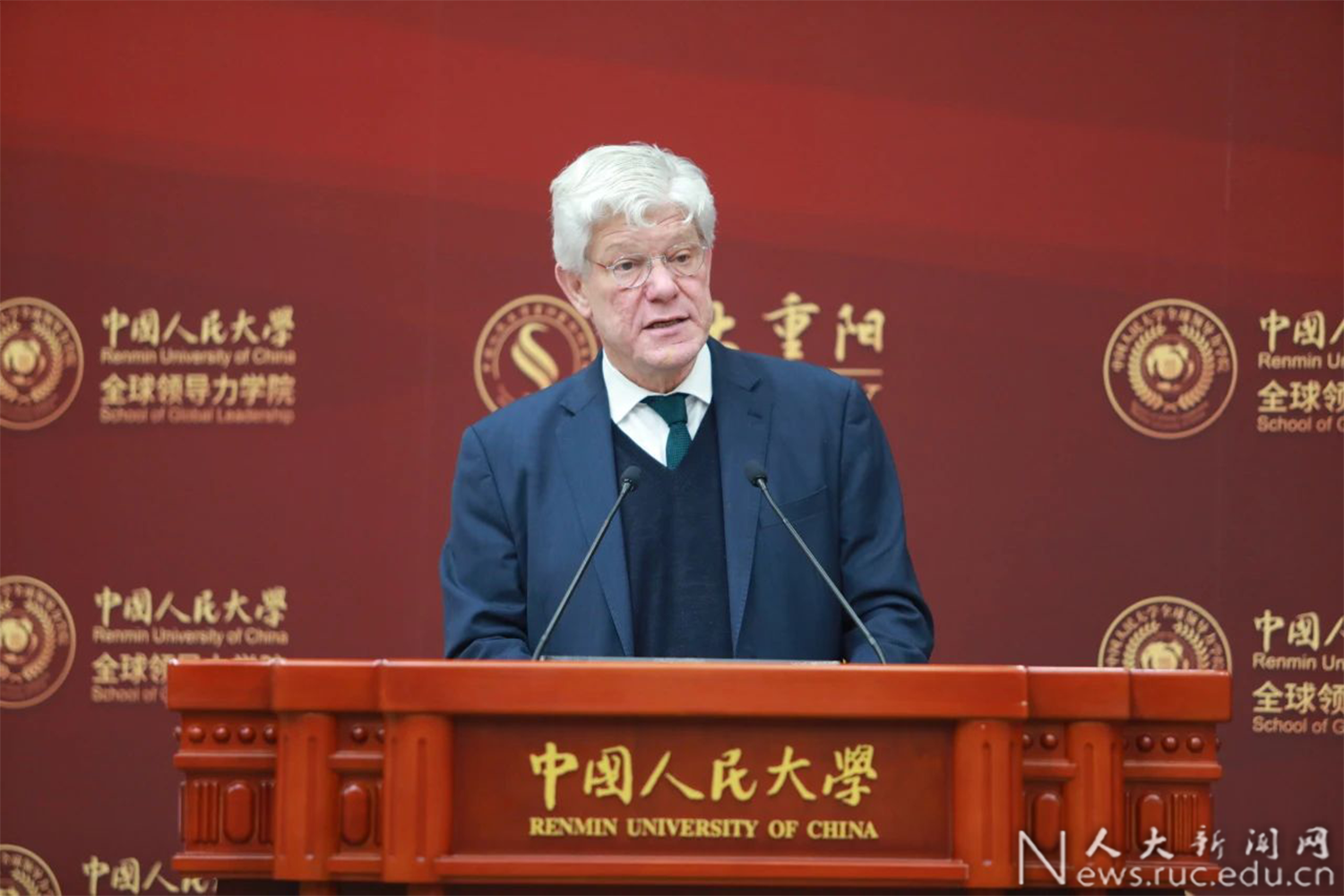
Fabrizio Hochschild-Drummond, former UN Under-Secretary-General, Researcher at the Geneva Centre for Security Policy, and Senior Fellow at Columbia University’s Kent Global Conflict Resolution Program, argued that 2050’s leaders must combine global vision, foresight, and technical literacy with dynamic knowledge renewal, cultivating AI-irreplaceable competencies. A hopeful future depends on inclusive, responsible leadership that addresses global North-South needs and rebuilds a united, confident international community.
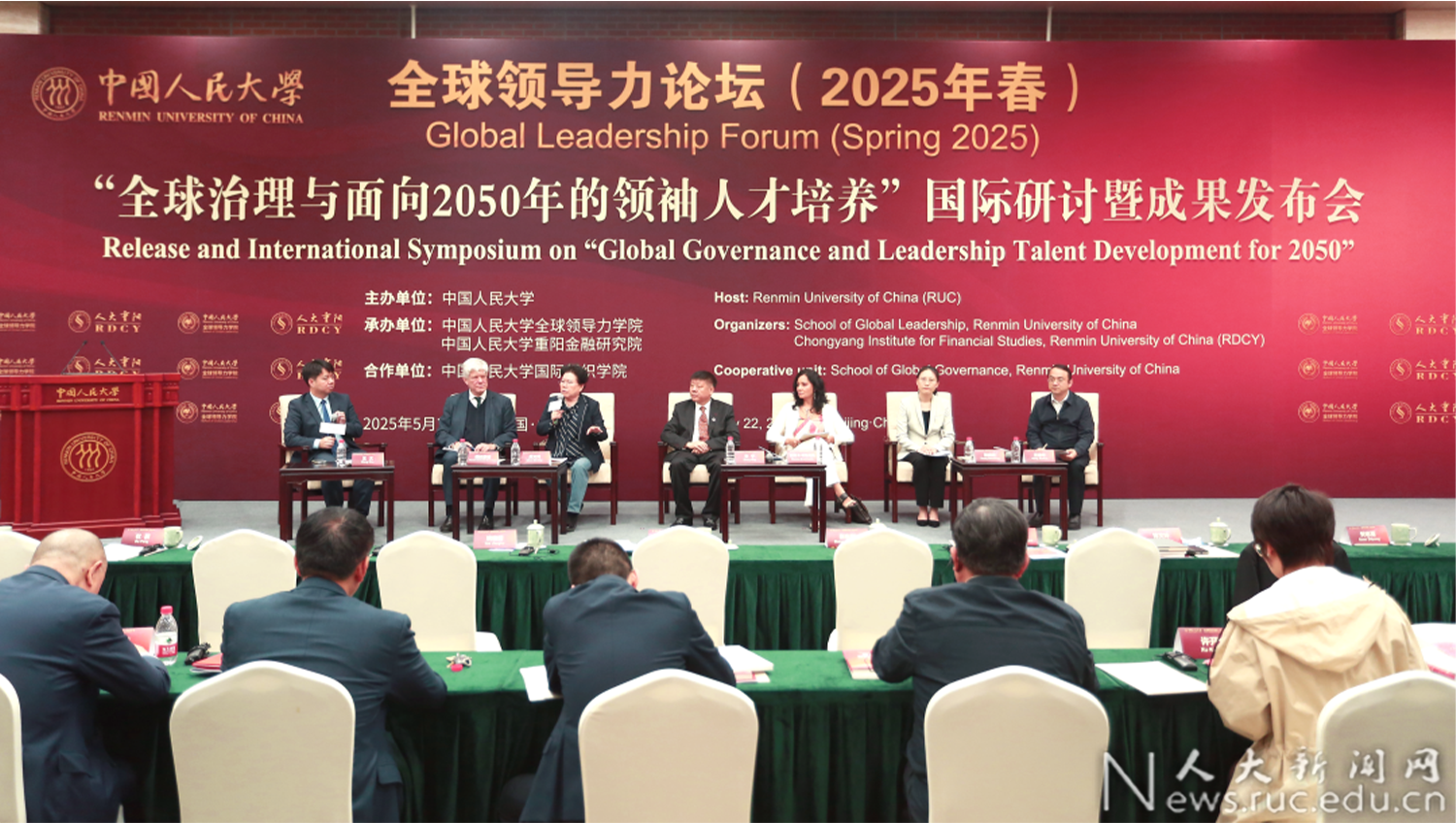
During a panel discussion on "Global Leadership Cultivation: Global Experiences and Chinese Practices," participants including Fabrizio Hochschild-Drummond, Chen Wenling, Zhang Ning (Vice President of the China Education Development Strategy Society), Monica Bruckmann, Zhang Xiaomeng, and Wang Jianhua (Dean of the School of International Organization) emphasized the critical importance of nurturing innovative, culturally agile leaders capable of strategic decision-making and cross-cultural communication in a fragmented world.
In November 2024, RUC established China’s first School of Global Leadership, committed to "promoting world peace, development, and a shared human future." With missions to serve national strategies, uphold shared human values, cultivate future global leaders, and innovate international education mechanisms, School of Global Leadership aims to train strategic navigators of change, cultural bridge-builders, and architects of a shared global destiny.


